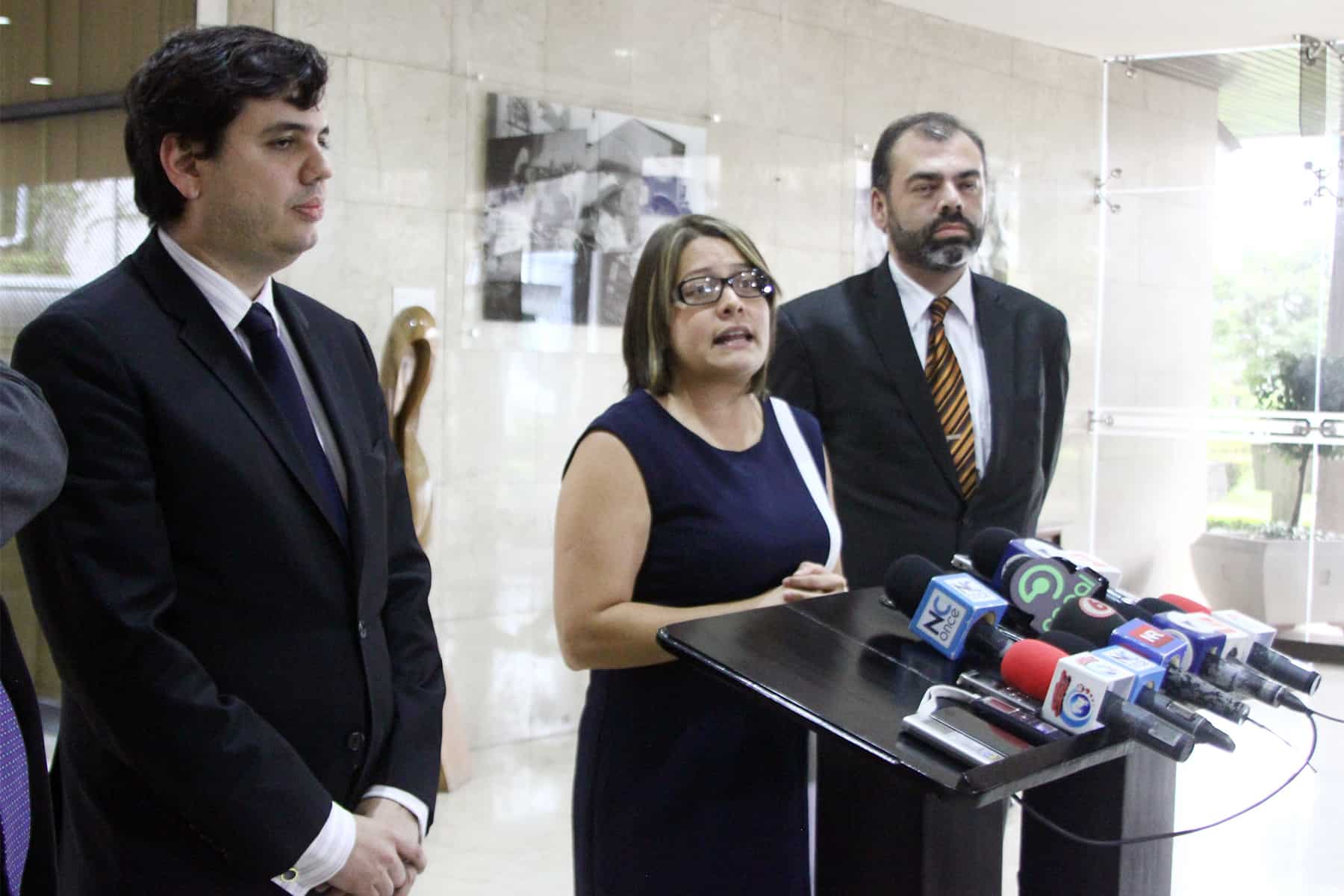President Luis Guillermo Solís took action to clear Costa Rican roads Wednesday evening of street blockades staged by private chauffeurs, or porteadores, who were protesting a cut in the number of permits granted to drivers.
At 7 p.m. National Police and Traffic Police officers began to remove all demonstrators under direct orders from the president.
Following the police actions, Solís delivered a message on national TV confirming he had ordered the streets cleared and saying he wouldn’t tolerate any further blockades.
He blamed the protestors for emergency responders’ difficulty in getting to a deadly car accident yesterday in Alajuela province.
He girado instrucciones terminantes a nuestras Fuerzas Policiales y de Tránsito de NO tolerar más bloqueos en nuestras carreteras.
— Luis Guillermo Solís (@luisguillermosr) July 9, 2015
The car crash, on Bernardo Soto highway, involved a semi trailer and a car carrying two women and two children. Both women, mother and daughter, aged 65 and 40, died while the children survived with fractures and multiple severe injures.
One of the children had to be transported by helicopter to the National Children’s Hospital in downtown San José because of traffic jams caused by the blockades, the president indicated. Traffic Police closed the capital’s Paseo Colón to allow the helicopter to land on the street.
Witnesses told police that the vehicle was one of many that attempted to make a U-turn to get to a parallel street and avoid the protestors’ road closure. But a semi trailer coming in the opposite direction crashed into the car and dragged it some 100 meters.
One of the porteadores’ leaders, Byron Marcos, denied that demonstrations led to the accident, saying “there weren’t any blockades at that site.”
Public Works and Transport Vice Minister Sergio Urbina refuted the statement, telling Telenoticias Channel 7 that the demonstration affected the outcome of the accident.
“We will not dialogue with a group that is blocking the streets and causing situations in which people are dying,” Urbina said. “As a direct result of these blockades, these people could not receive proper emergency care in time by ambulances.”
At 8 p.m. President Solís addressed the country on national TV and said he regretted that rescue services were unable to reach the accident’s location on time and that he will not bow to pressures or grant demands that go against the law.
“We simply cannot commit to breaking the law, we will not bow to pressure during a very difficult time for our country … where two-thirds of the country is severely threatened by one of the most severe weather crises in our recent history,” Solís said, referring to flooding affecting communities in three provinces over the past two weeks.
Agreements follow
After a meeting Thursday at the Ombudsman’ Office, the government and protestors signed an agreement in which the porteadores promised “not to stage any more blockades, demonstrations, or intimidate motorists on the roads.”
The government, for its part, promised that the Presidency’s Legal Department would conduct a technical study on the demand for transport services under parameters set by the Public Transportation Council (CTP). The study’s results are to be released no later than July 30.
The parties will continue negotiations on Thursday.
Wednesday’s protests, which blocked major roadways in four provinces, was prompted by a CTP decision to renew only half of the permits, known as Special Taxi Service (SEE Taxi) permits, granted to porteadores.
Under the new regulation, which took effect Wednesday, some 1,821 drivers lost their permits to operate.
Watch President Solís’ speech on national TV






